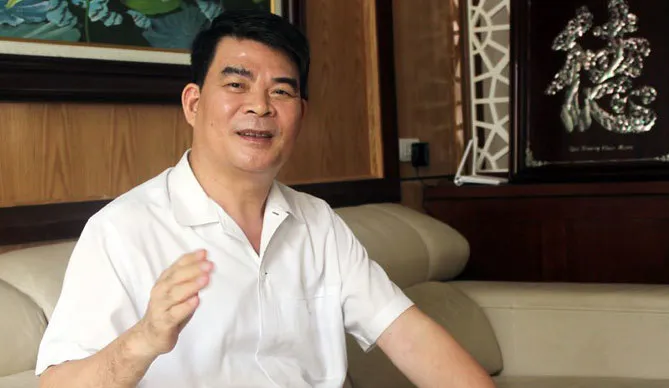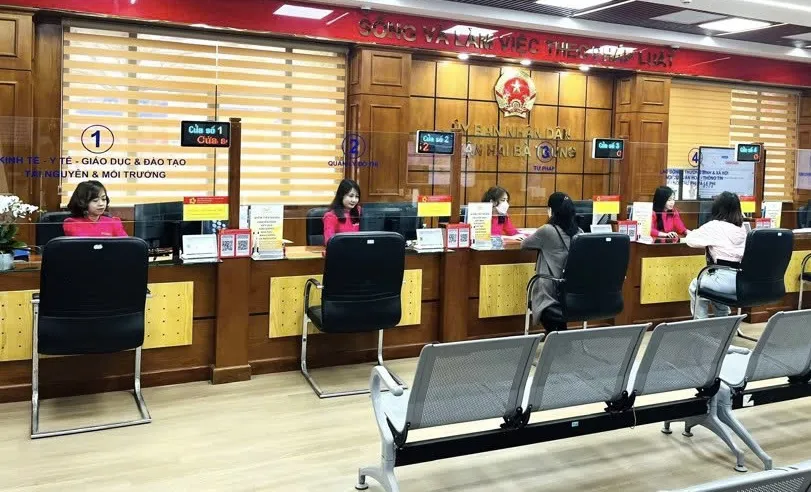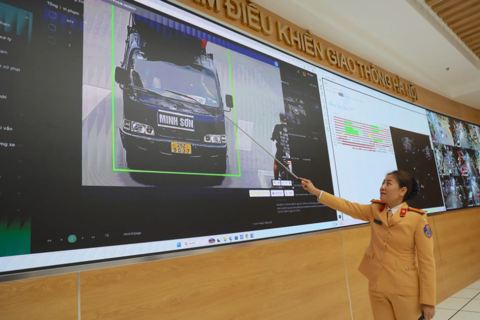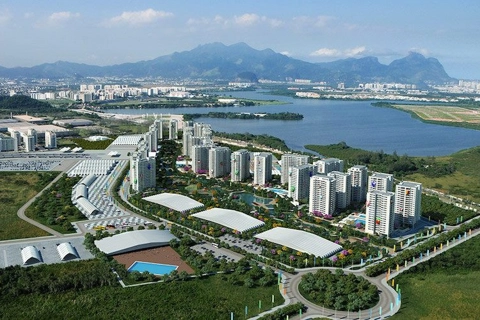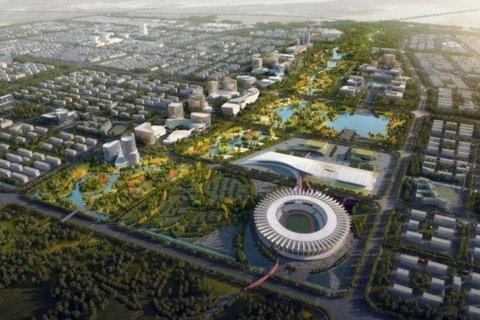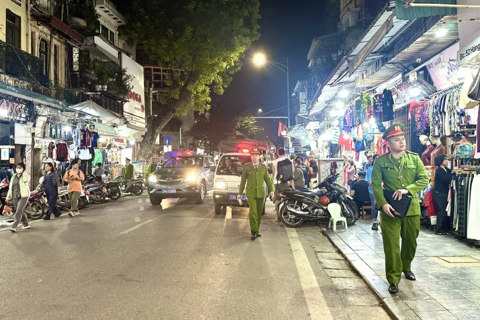Vietnam's revolution to streamline its organizational structure for faster progress
The revised Capital Law grants Hanoi significant decentralization, providing a strong foundation for the city to effectively streamline its administrative structure and meet the demands of the new development phase.
| Nguyen Tien Dinh, former Deputy Minister of Home Affairs in a talk with The Hanoi Times. Photos: kinhtedothi.vn |
Party General Secretary To Lam has stressed the urgent need to implement the revolution in reorganizing and streamlining the political system’s structure towards being "Streamlined - Efficient - Strong - Effective." Nguyen Tien Dinh, former Deputy Minister of Home Affairs, discussed this challenge with The Hanoi Times, describing it as a complex and difficult revolution that demands decisive, coordinated action, even if it affects the interests of individuals and organizations.
Why did the General Secretary set the requirement for reorganizing and streamlining the apparatus at this moment?
General Secretary To Lam recently published an article calling for the reorganization and streamlining of the political system, ensuring it is "streamlined, efficient, strong, effective, and impactful." The Party Central Committee has officially endorsed a policy to initiate a revolution in streamlining the organizational structure of Vietnam's political system.
We recognize that the country is entering a new phase of development and national growth, which requires acceleration and breakthroughs to meet evolving needs and overcome challenges. This is particularly crucial as Vietnam is still a lower-middle-income nation and is approaching the end of its "golden demographic period." As such, it is essential to seize this opportunity.
Although Vietnam has made significant progress in reforming the organizational structure of its political system, contributing to the country’s socio-economic development, the Central Committee’s resolutions have acknowledged that “our country has never had as much potential, power, international standing, and prestige as it does today.” However, despite these achievements, there are still many challenges ahead in meeting the country’s development needs and the Party's goals—"to become a developed industrial nation by 2030, and a high-income developed country by 2045."
13th Party Congress resolution identified three breakthroughs, which are also the current bottlenecks of the country: infrastructure, institutions, and human resources. The Party has recognized institutions as the “bottleneck of the bottlenecks,” with the issue of "organizational structure of the apparatus" being a major obstacle that makes it difficult for Vietnam to achieve breakthrough development and accelerate progress in the coming years.
To develop, it is clear that focus must be placed on these breakthroughs and addressing the bottlenecks highlighted in the Party Congress resolution, particularly the bottleneck related to the organizational structure of the political system.
We have gone through several rounds of reorganizing and streamlining the apparatus. How would you assess this round of streamlining compared to previous ones?
Vietnam has repeatedly carried out efforts to reorganize and streamline the apparatus, especially since the renovation period, which saw reforms in state administration, party leadership, and the judiciary. As the General Secretary has noted, the political system’s organizational structure remains divided into three main blocks (the Party, the State, and mass organizations), which are relatively stable and aligned with the strategic goals and Constitution.
However, within the structure of each block, there are still issues that need addressing, such as cumbersome organizations with many intermediate layers. A major challenge is the unclear distinction of functions and responsibilities between agencies, both within and across levels of the system, from the Central to local levels. This has led to limited effectiveness and efficiency in the functioning of the political system’s apparatus.
Therefore, as Vietnam transitions into a new era—the era of national growth—achieving the goal of a 7% annual growth rate until 2045 and increasing labor productivity requires a “revolution”, more than just "renewal" or "reform." It calls for a full-scale "revolution," demanding decisive, thorough, and unwavering action.
This shift will raise many challenges, ranging from the political commitment of the entire Party to the solutions needed across all levels of the system, as well as the awareness of every official, party member, and citizen.
This is a difficult and complex revolution that must be carried out with determination, coordination, and comprehensiveness from the top to the grassroots level. It may impact the interests of individuals, officials, party members, and organizations. As the General Secretary has stated, "We must be willing to sacrifice for the benefits of the mass," rather than for personal (political or economic) interests.
The goal is to complete the reorganization and streamlining of the political system’s apparatus by the first quarter of 2025 in preparation for the Party Congresses at all levels leading up to the 14th National Party Congress. Although the time is limited, the workload is substantial, so we must implement the process comprehensively across all three blocks, from top to the grassroots level, nationwide, without delay, as the schedule for the Party Congresses at various levels has been set according to the Politburo's Directive 35-CT/TW.
This requires strong political will, a high level of solidarity, and a shared understanding across the entire Party and the people to successfully carry out this revolution.
What do you think are the key requirements for implementing this revolution in Hanoi, particularly in connection with the newly-enacted revised Capital Law?
Hanoi, as the capital and political center, must lead by example. "At the top, the Central Committee and Politburo must take the lead," and "at the local level, the city must take the lead as well, especially since it is the capital of the entire country." Clearly, according to the resolutions and plans set by the Central Government, Hanoi has no choice but to implement them.
Hanoi has a large number of administrative agencies, Party organizations, Vietnam Fatherland Front, as well as a significant workforce of officials and civil servants. Therefore, the workload is substantial, while the time for implementation is the same as the other localities, requiring a higher level of political determination.
I assess that Hanoi faces specific challenges, which are much more complex. The city has had a surplus of officials for a period, with a higher number compared to other localities. Additionally, under the newly enacted Capital Law, Hanoi will see an increase in salary for civil servants by no more than 0.8 times, effective from January 1, 2025. While this is an advantage, it also presents a challenge for the city due to the large number of civil servants and the complex structure. Hanoi also has its specific policies, which involve potential impacts on the rights and interests of individuals when streamlining the apparatus.
Furthermore, with the implementation of the revised Capital Law, Hanoi has been granted greater decentralization. Therefore, in streamlining its apparatus, the city needs to selectively build an effective workforce to meet the higher demands of the new development phase.
In addition to the determination from the Party committees and local authorities, I believe the city should have a well-calculated plan based on the Central Government’s guidelines. Above all, it is crucial to approach this process with objectivity and democracy, while enhancing communication to build consensus.
The process must be objective and democratic, focused on the common good of each agency, so that the right individuals are selected to carry out the tasks effectively. The goal is to build a truly streamlined team—compact but strong. If the team is reduced in size but not capable or unable to meet the tasks assigned, especially with the increased responsibilities and authority that come with Hanoi's status as capital, the goals of this revolution will not be achieved.
Until now, in carrying out tasks, the responsibility of leaders has always been emphasized, and in this revolution, more than ever, the role and responsibility of leaders must be demonstrated. If the leaders do not perform well, it is clear that our revolution will face great difficulties.
| People completing business procedures at the administrative office of the Hai Ba Trung People's Committee. |

